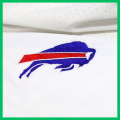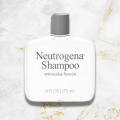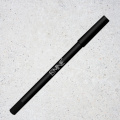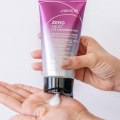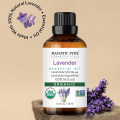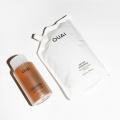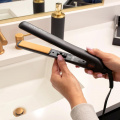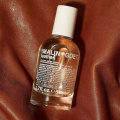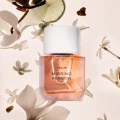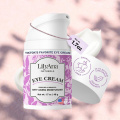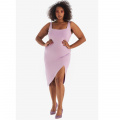How do you treat a dry scalp and oily hair?
Those "dandruff flakes" you've been worrying over might not be dandruff at all but a common condition is known as dry scalp and oily hair problem. Which is an indicator that the natural balance of the scalp needs stabilizing.
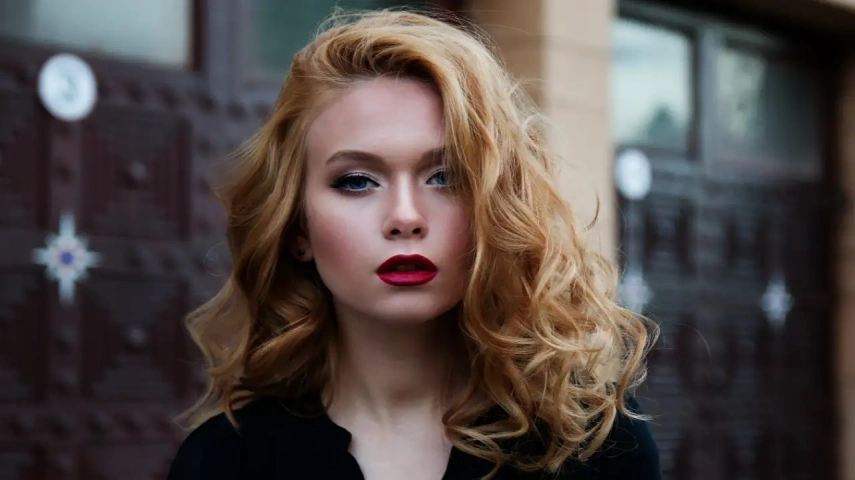
Unappreciated hair problems include dry scalp and oily hair. When talking about hair issues, a combination like this frequently passes overlooked, and the cause of them can be elusive. It can be difficult to maintain oily hair, and it gets harder when your scalp is dry. Relax if you experience a similar problem. We've got your back. The causes, symptoms, and treatments for dry scalp and oily hair are all covered in this article.
Causes Of dry scalp and oily hair

Itching and flaking are the primary characteristics of a dry scalp, which may indicate pruritus. When your scalp is improperly dehydrated, it happens. Sebaceous activity is mostly responsible for scalp flaking. Sebum, a complex oil made of triglycerides, fatty acids, wax esters, squalene, cholesteryl esters, and cholesterol, is produced by the sebaceous glands. Less sebum is produced, which causes the scalp to become malnourished and begin to flake. Numerous factors might lead to a decrease in sebum production, including:
- Over-shampooing
- Fungal or bacterial infections
- Weather conditions
- Thermal damage from styling tools
- Hair dyes
- Improper hygiene and healthcare
On the other side, oily hair indicates excessive sebum production. By clogging the pores on your scalp, excessive oil production might prevent hair growth. Having very greasy hair is frequently related to hair thinning.
It's pretty typical to encounter someone with straight hair who also has an oily scalp and hair. Straight hair makes it easy for sebum to travel down its length, making your scalp dry and your hair too greasy. Another theory is that your scalp's pores may have accumulated too much debris and product residue. Your scalp becomes dry as a result of these clogged pores pushing sebum down the length of your hair.
Is my scalp dry?

Consult a medical professional or certified dermatologist for a diagnosis of any scalp issues. To get rid of the yeasts that cause dandruff, your doctor may decide to treat your dandruff using salicylic acid treatments or medicated dandruff shampoo. The seborrheic dermatitis medical condition can also make the scalp itchy. Other causes of itchy scalp diseases include fungus like ringworm, which is treated with ointments having antifungal characteristics, and parasitic illnesses like head lice. Extreme itching, if unchecked, can harm follicles and even contribute to hair loss.
Therefore, take into account that your itchy scalp might not be dandruff before rushing to the pharmacy to get something to treat it. Additionally, the majority of dandruff shampoos contain chemicals and sulfates that may exacerbate your dry scalp problem by depleting your hair of oils, which in turn may lead to an imbalanced cycle of excessive sebum production and an oily scalp.
Scroll down to check out the symptoms of this type of combination hair.
Symptoms

If you have a dry scalp with oily hair, you may notice the following symptoms:
- Small white flakes on your scalp.
- Your hair always looks flat.
- You wash your hair every other day due to greasiness.
- You may notice redness or small bumps on the scalp.
You might wish to take care of these symptoms because they can be pretty bothersome. You can try some of the therapy options in the next place.
Symptoms of dry scalp
Lack of moisture can cause the scalp to become dry, flaking, and itchy. By frequently washing the hair with the correct shampoo, applying a little moisturizer, and going through regular scalp detox procedures, you can treat a dry scalp condition or flaky scalp. The main sign of a dry scalp is an itchy scalp, however other symptoms include:
- The tight or dry feeling of the scalp
- Light but visible flakes – these are dead skin cells shedding due to increased dryness on the scalp
- Mild scalp irritation
The normal sebum produced by the sebaceous glands on the scalp is removed too thoroughly and frequently by shampoos that are excessively abrasive, overly alkaline, stripping, or drying. The proper care, which starts with utilizing the right hair care products, may calm your dry scalp, just like it can relieve dry skin.
Symptoms of oily hair

Oily hair might look limp or drab and lifeless and feels greasy, glossy, and oily. Heavy oils may bring on this issue in hair products or excessive oil from the scalp, but genetics can play a part. Oily hair needs gentle cleaning to remove the excess oil without drying out the scalp.
The proper quantity of sebum is produced by a healthy follicular environment to lubricate the scalp and hair, but some hair care products might upset this natural equilibrium. In other words, if you have a dry scalp and oily hair, your present haircare regimen is ineffective, and you need to make a change.
Balancing a dry scalp and oily hair
According to experts, utilizing treatments that are too abrasive and remove the scalp of its natural oils is a common cause of dry scalp. It can also be brought on by an underlying condition like psoriasis or eczema. Additionally, she suggested avoiding "heavy products that would weigh down your hair and make it look even greasier" for oily hair in particular.
In addition to providing exceptional care for the hair and scalp, the right hair products will aid in maintaining the ideal moisture balance for a healthy scalp and gorgeous, healthy hair. To stop the scratching and mild flaking of a dry scalp without aggravating the oily hair issue, sebum production can be balanced. The key word here is balance.
Your options for treating greasy hair and dry scalp are varied: To support a natural balance of sebum produced on the scalp, you should shampoo your hair regularly, replace any hair products you currently use, and consult a dermatologist to rule out any medical concerns. If the oil problem is overpowering the hair, you may also perform a weekly rinse with cool water and white vinegar to clarify the hair strands. Once the hair and scalp are more evenly distributed, you can stop using the vinegar rinses.
Treatment

The best treatment for a dry scalp is to moisturize it with deep conditioners, oils, and hair masks.
- Oiling your scalp consistently, at least twice a week, will keep it hydrated. For improved effects, the oil can also be slightly warmed.
- Use deep-conditioning hair products designed especially for the scalp. The concentrated chemicals used in these treatments will moisturize and hydrate the scalp.
- As they moisturize the scalp, you can also try moisturizing hair packs and masks with substances like aloe vera, glycerin, avocado, etc.
To treat oily hair, use refreshing and cleansing products.
- Use rosemary and other sebum-balancing herbs in hair masks.
- Instead of often bathing your hair, you can use dry shampoos to eliminate extra oil from the hair strands.
- Instead of washing your hair too frequently, you can co-wash your hair the other days and shampoo it once or twice every week. Like conventional shampoos, co-washes and conditioning cleansers don't entirely dry up the scalp. You must use shampoo at least once a week because they don't completely clean the scalp.
Switch out your shampoo
A vegan clean beauty shampoo can be used daily if necessary to replace your previous one. This shampoo needs to be sulfate-free to prevent dehydrating your scalp, and options like vegan protein in place of keratin proteins derived from animals are advantageous. The wild-harvested marula, baobab, and ximenia oils in the sulfate-free shampoo nourish and hydrate the scalp without leaving behind pore-clogging residue. Other environmental conditions, such as going to the gym more frequently and perspiring a lot, or dry air that dries out your hair and scalp, can also cause your sebum to overproduce. You should always have a backup cleaning solution available, such as dry shampoo, which may be used to wash your hair without wetting the scalp. This lightweight talc-free formula absorbs the excess oil in your hair without over-drying it.
Use the right moisturizing conditioner

Use a conditioner with low moisture that works nicely with your shampoo. The same moisturizers included in this thin conditioner nourish the hair strands. Ingredients like Ximena oil, murumuru butter, and wild-collected marula oil balance moisture throughout the strands without leaving an oily or greasy residue.
Detox the scalp weekly
The Detoxifying Serum gently removes persistent accumulation while retaining moisture to help prevent a dry scalp and safeguard the scalp from toxins to help balance your follicular ecology. Additionally, this extract for scalp therapy safely lessens the visibility of adherent and non-adherent flakes.
Can a dry scalp cause dandruff?
Dry scalp and dandruff are two scalp disorders that are frequently confused with one another. One typical cause of dandruff is an oily scalp. The fungus Malassezia furfur, which can thrive on an oily scalp, causes dandruff.
Usually, a dry scalp does not cause dandruff. Seborrheic dermatitis or persistent dandruff may be to blame if you do notice flakes of dandruff on your scalp that persist even after treatment.
Rarely, overly oily hair or a severely dry scalp and oily hair may be signs of another illness. Scroll down to the section below to find out when to see a doctor.
When should I see a doctor?

Please get medical attention if you experience any of the following:
- If hair loss and extreme redness or inflammation are present together with the scalp's dryness.
- If even after using moisturizing packs, serums, masks, and deep conditioning treatments, the scalp is still dry.
- A surplus of oil is beginning to thin out your hair.
- You start losing your hair.
Being in a situation where your hair is oily and your scalp is dry might be puzzling. Your scalp is dry and requires hydration and moisturization, on the one hand. On the other hand, your hair lays flat and rapidly becomes greasy. Your scalp feels too dry if you wash your hair to remove the grease. Use hydrating masks on your scalp, massage nourishing oils into it, and lessen how often you wash your hair to combat dry scalp and oily hair. Natural shampoos that don't dehydrate your scalp can be used to wash oily hair. Additionally, you might make use of co-washes and similar items. For your scalp, keep a moisturizing spray on your hands. Whenever your dry scalp and oily hair feel dry and itchy, you can spray it on.
Also read: 7 Best shampoos for dry scalp to knock off hair loss





 JOIN OUR WHATSAPP CHANNEL
JOIN OUR WHATSAPP CHANNEL
























